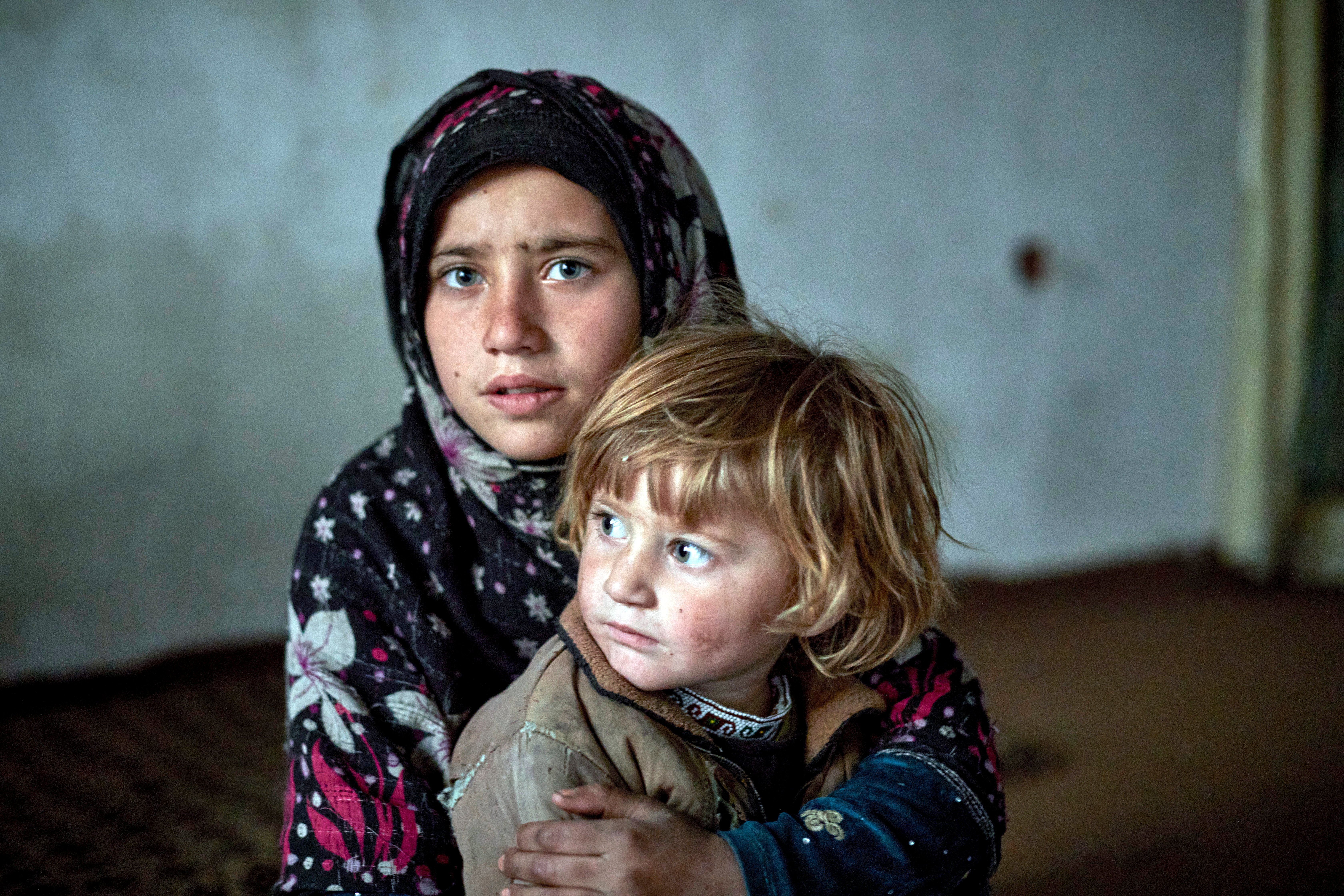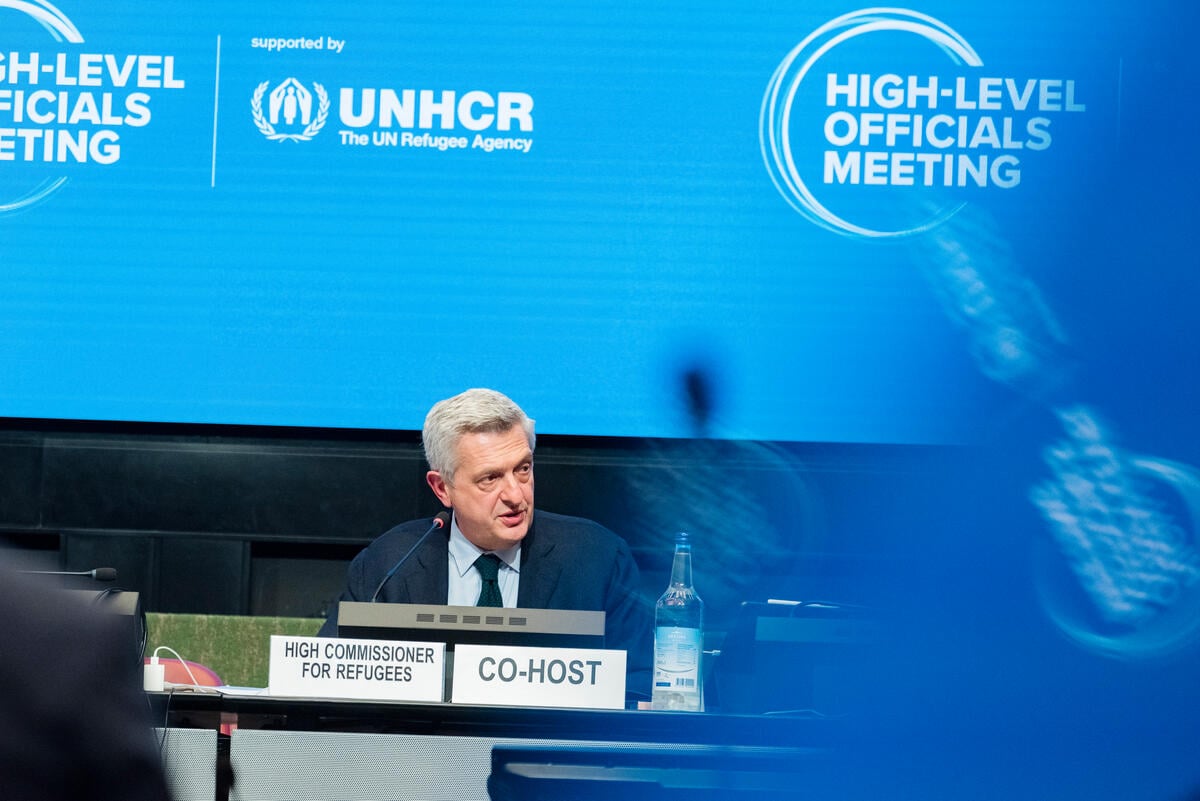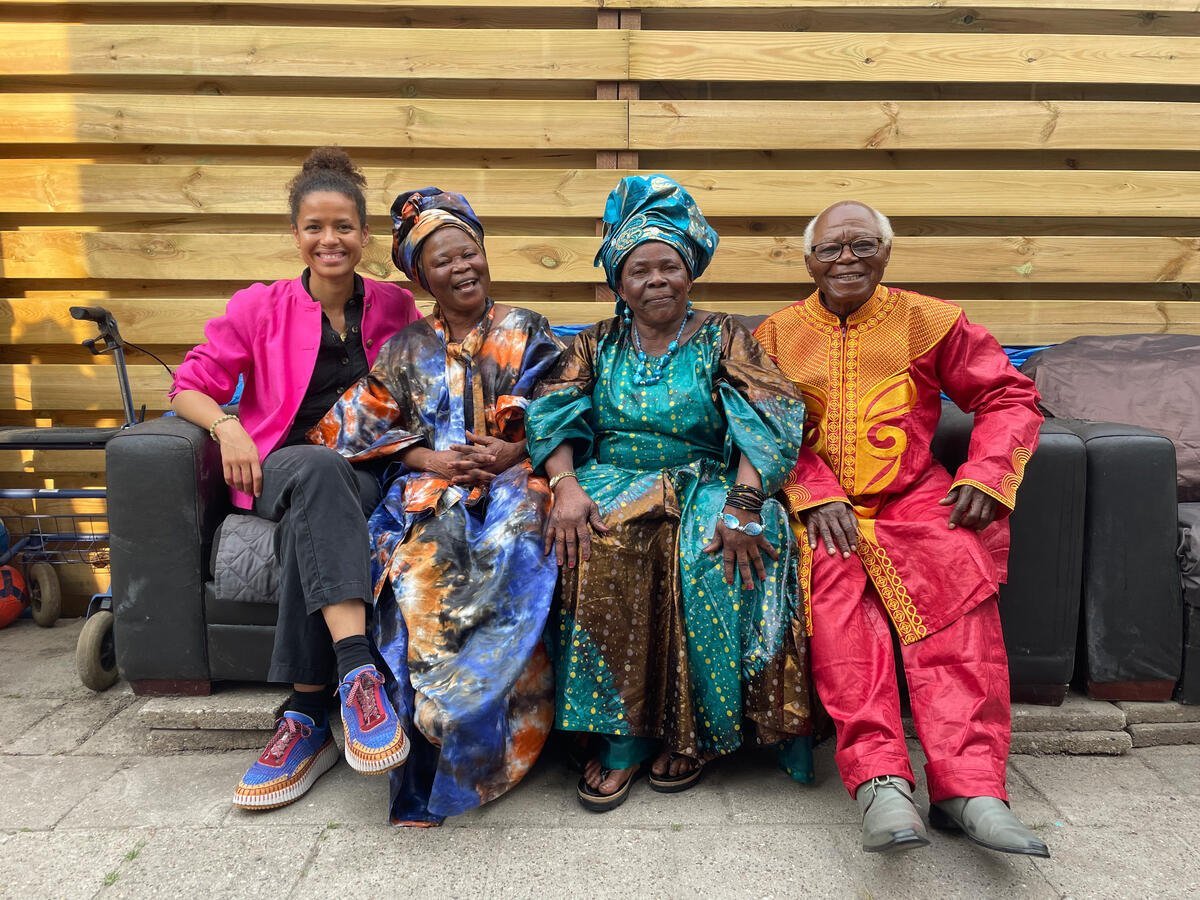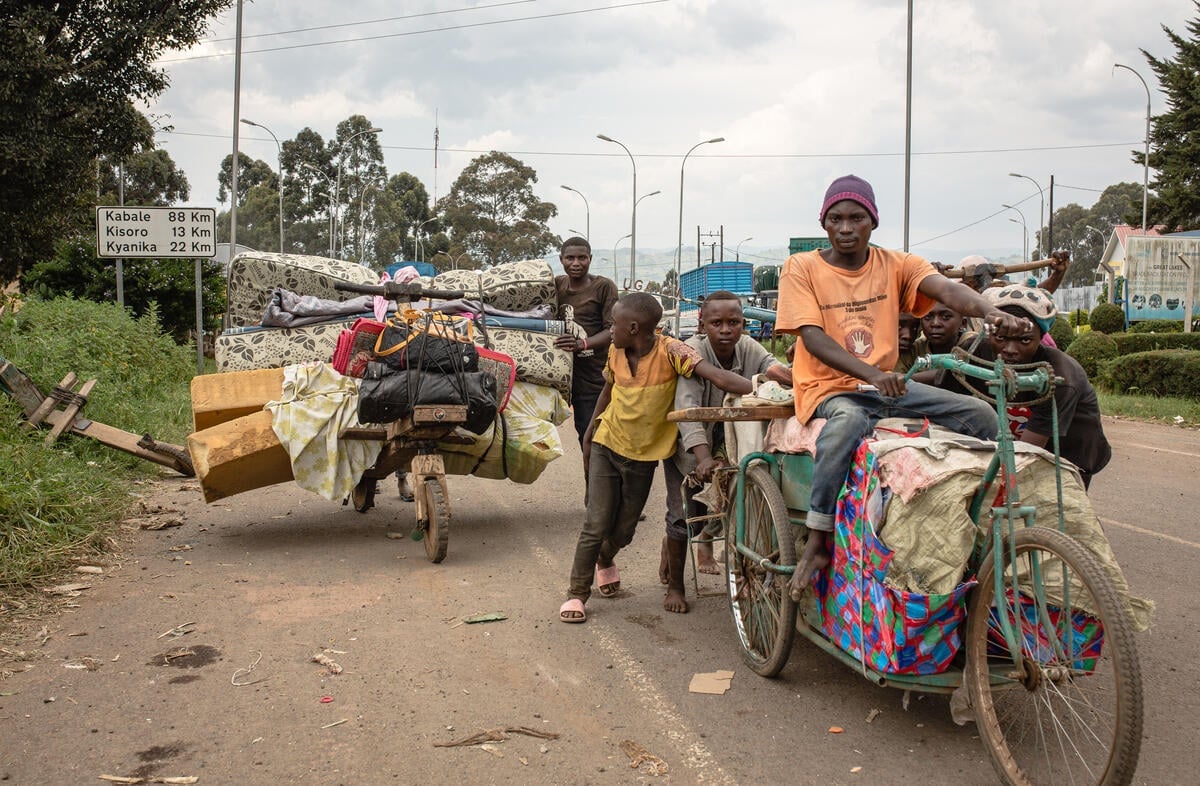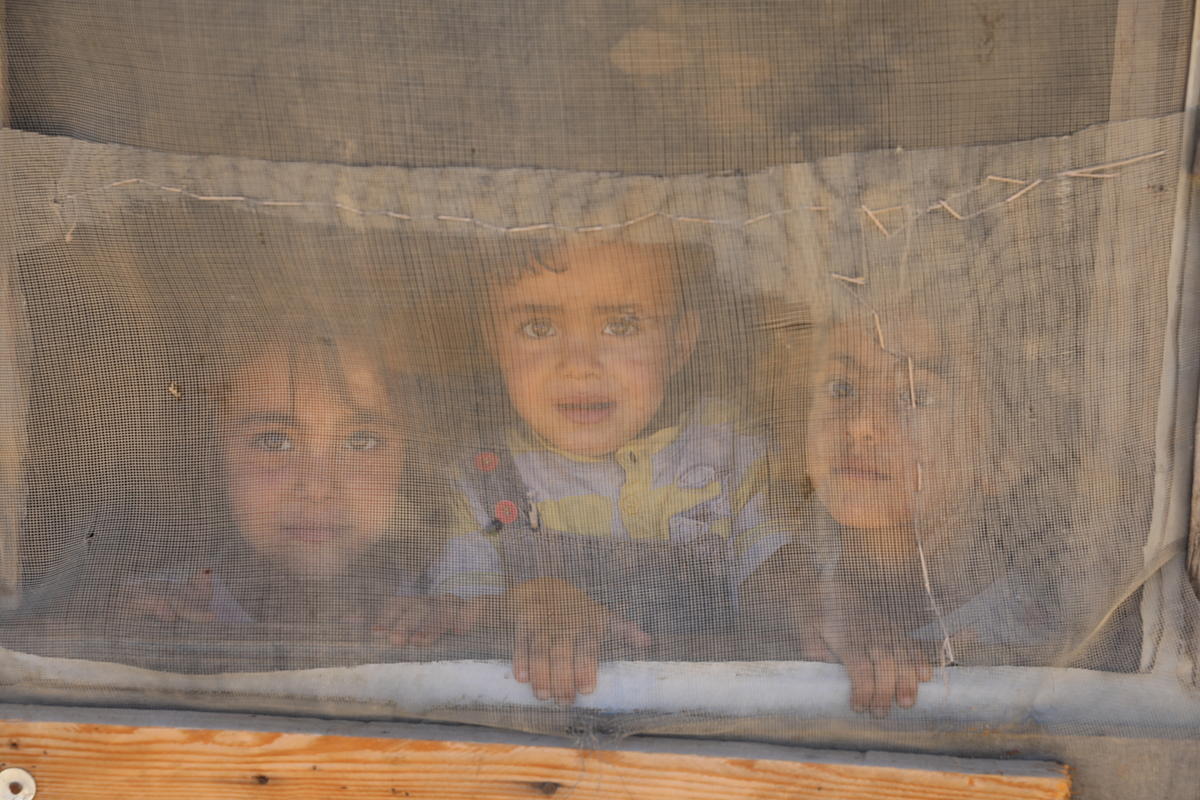Survivors of Burundi's Gatumba camp massacre head to the United States
Survivors of Burundi's Gatumba camp massacre head to the United States

BUJUMBURA, Burundi, March 19 (UNHCR) - A first group of 35 Congolese refugees who survived Burundi's Gatumba massacre left the country at the weekend to start new lives in the United States. In the next few months, some 500 other survivors will head to US cities such as Denver, Louisville and San Francisco under a resettlement programme.
Elias Kanyabitaro, who lost his first wife and an 11-year-old daughter when armed men torched shelters and killed at least 156 people during the August 13, 2004 raid on a refugee camp at Gatumba, was among the first group to go.
Accompanied by his 10 children and his second wife, 53-year-old Kanyabitaro left the Burundi capital, Bujumbura, on Sunday still uncertain about the exact location of his new home - the Texas city of Abilene, whose nickname is "The Friendly Frontier."
But he was glad to be leaving the ramshackle house that he and his family shared with four other families in Bujumbura. "In America, there is a good life if you work for it. We will learn how to live there. I just can't live here anymore," he said.
Kanyabitaro and his family could have moved to more comfortable quarters in another camp after the Gatumba attack, but they refused because for them all refugee camps had become synonymous with terror and death.
"My children have vivid memories of the burning tents, of gunfire and of their dead mother, my wife," he said, calmly recalling the night when the gunmen attacked the camp near Bujumbura as some 800 residents slept. Most of the dead were women and children. None of the attackers have been apprehended.
All of Kanyabitaro's children suffered psychological trauma and three of them have permanent physical scars; one was shot in the leg, another in the hip and a third near her eye. She was among about a dozen wounded refugees medevaced by UNHCR at the time for emergency treatment in Nairobi.
Kanyabitaro and his family were among some 20,000 Congolese who fled to Burundi to escape extensive fighting in South Kivu province of the Democratic Republic of the Congo in mid-2004. Many of the refugees stayed in Gatumba, located halfway along the 30-kilometre road from the border to Bujumbura.
At the time, UNHCR expressed concern about the security situation in the border region and repeatedly asked the authorities to identify safer sites for camps further inside Burundi. The refugees wanted to stay close to the border so that they could look after their property and return home quickly once hostilities ceased.
After the massacre, some refugees agreed to move to a newly opened camp but most preferred to settle in the city where they felt safer. Some went back to their homes in the DRC.
In the meantime, members of the Congolese diaspora were lobbying the US administration to accept the survivors of the Gatumba massacre for resettlement. Their plea was heard and the United States worked with UNHCR and the International Organization for Migration to prepare their departure.
The UN refugee agency screened and interviewed refugees and prepared and submitted individual cases to the US authorities.
UNHCR Representative in Burundi Kaba-Guichard Neyaga said the massacre was the most distressing event of his career. He welcomed the first departures. "It is a salutary resettlement that will allow refugees with special medical needs to have better access to care and, since neither local integration in Burundi nor a return to the DRC could be foreseen in the near future, this ensures these refugees are safe and have better opportunities for their families," he said.
The future is unclear for the former cattle herder Kanyabitaro, but he is confident that he will manage despite the fact that he knows nobody in America and has hardly any belongings. The refugees will receive vocational training and free accommodation for their first six months in the United States.
A sponsor will be waiting in Abilene to help Kanyabitaro and his family. His rudimentary English, picked up during a two-month training course, allows him to say that his name is Elias and that he is well, thank you.
By Catherine-Lune Grayson in Bujumbura, Burundi


